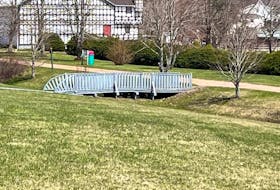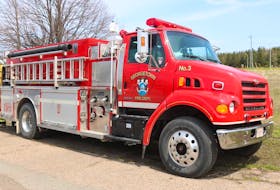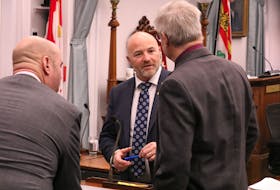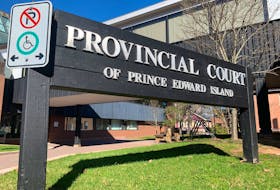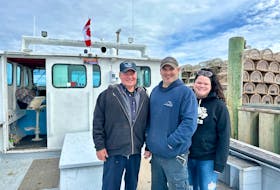Charlottetown Police Services is using a new technology in an effort to make the roads safer.
The police force has partnered with a software company, Vigilant Solutions Canada, and is using a state-of-the-art licence plate recognition camera on top of one of its cruisers in Charlottetown.
“What they do is they’ll capture licence plates and run it against a hot list of plates. And those hot lists could be expired licence plates, they could be stolen vehicles, they could be vehicles associated with such things as amber alerts,’’ said Deputy Chief Brad MacConnell, adding that it will also identify vehicles with too many outstanding parking tickets.
“They are big tools for law enforcement . . . it’s an effort to improve road safety . . .to rein in the rising cost of policing.’’
Once the computer inside the police car is activated, a camera live streams vehicles moving and idling in front and on both sides of the cruiser. The technology picks up every licence plate, thanks to the reflective coating on all Island plates.
The cameras can compensate for speed, weather and headlight issues. Snow and mud cover can make it challenging for the cameras but not impossible.
The Guardian accompanied MacConnell on a drive through Charlottetown on Monday and during the ride the alarm on the computer sounded three times, picking up licence plates that weren’t registered.
The technology can also put, for example, a geo-fence around the home of someone who has a stay-away order from another person. Should a vehicle with a licence plate identified as the person who isn’t supposed to be there crosses the geo-fence, police are alerted.
This technology isn’t costing the city a dime yet. It’s being run as a pilot project. Eventually, city council will have to make a decision on whether the technology becomes part a permanent tool in the enforcement’s arsenal.
“If we do feel that it’s a value we’ll put forward in a business case, as a new initiative, for next year’s budget. Then it falls into the standard process so it’ll go through the budget process and, if it gets approved, we’ll look at purchasing equipment, whether it’s from Vigilant (Canada) or not.’’
So far, though, the pilot project appears to be off to a good start.
“We’ve identified already a large number of unregistered vehicles and, typically, when an unregistered vehicle is identified the person may not have a valid driver’s licence or any valid insurance or a valid inspection or a combination of any of those. So, when you’re able to get those vehicles off the road I think that’s a good day for road safety.
“It’s typically those types of vehicles involved in other things. We’ve seen a linkage between (unregistered plates and) gas drive-offs or other thefts. Now, we haven’t had to identify any stolen plates yet but we do have a large number of stolen plates within our province per capital. To identify those is very helpful.’’
MacConnell said the plan is to test the technology out for five to six months in Charlottetown.
“(Then) we’ll look at the performance measurements we’ve put in place to gauge it and, at the end of the day, if it does make business sense and it does improve road safety then we’ll look at it as a new initiative in next year’s budget.’’

